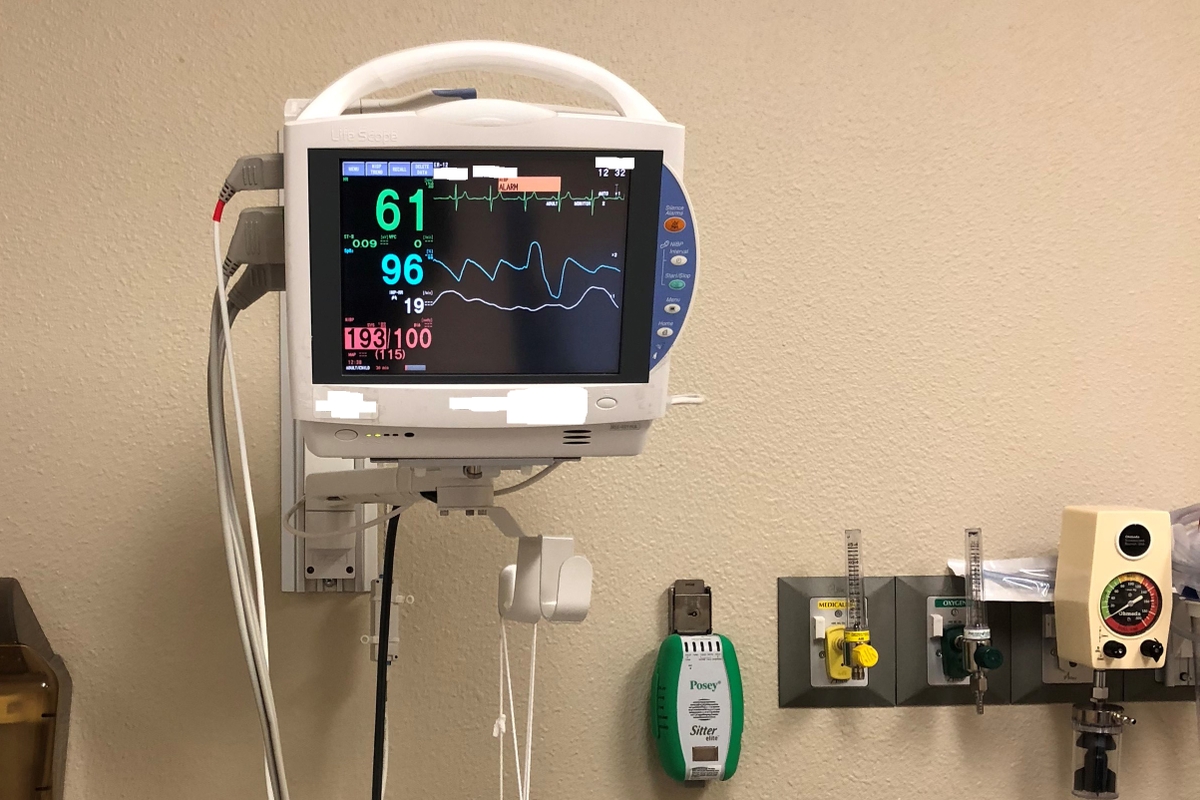It’s no secret that travel nurses tend to make more money for their time than regular providers, usually around $125 per hour. That means temporary workers usually have to take a pay cut when transitioning to a full-time job.
But making less money is often easier said than done, especially when travel nurses are looking to settle down and stay put.
A “Life Changing Number”
Sara Dean, 38, was working as a nurse at Ascension Saint Thomas Hospital in Tennessee when the pandemic hit. When she saw that travel nurses were making as much as $10,000 a week, she decided to quit and signed a contract with a temporary nurse staffing agency.
“That’s a life-changing number. That’s a number that helps you pay off debt, move out of your grandma’s basement or whatever,” Dean said. “I’m not saying we were struggling. We were a two-income household. But we made ends meet.”
She left her hometown and traveled to New Mexico for a three-month assignment. Her boyfriend and 12-year-old daughter Harper came with her. They made it work with Harper attending school virtually and her boyfriend working remotely. They also enjoyed mountain biking through the desert.
As the nature of the pandemic changed, Dean found herself traveling all over the U.S., including COVID-19 hotspots in Maryland and rural Alabama. At one point, she was making $200 per hour in overtime while working 60 hours a week caring for critically ill patients.
But after two years on the road, Dean and her family decided to come home to Tennessee where Harper is currently practicing to be a cheerleader.
“I didn’t really have that many friends,” Harper explained about coming home. “I miss it so much being able to be surrounded by different people all the time.”
Even though Dean was making so much money on the road, the toll of traveling was starting to have its effects. She says her daughter is ultimately the boss when it comes to big life decisions.
“She’s the one that says, ‘No more traveling…I want to go home,'” Dean said. “But that also puts me in a bind.”
Coming home means exchanging her travel nurse position for a full-time gig at a local hospital. Many facilities refuse to hire temporary workers over full-time staff because they can’t match the pay that comes with being a travel nurse.
For Dean, that would mean taking a big pay cut.
“This makes me sound like I’m in it for the money, but essentially I’m in it for what’s best for my family,” Dean says.
She’s been applying to positions at Nashville hospitals that still rely on temporary workers hoping to find a job that will pay around what she was making as a travel nurse.
Vivian Healthcare, an online marketplace that tracks pay rates for travel nurses all over the country, is trying to help hospitals move away from temporary workers, which requires hiring more permanent staff.
“You’re caught kind of between a rock and a hard place,” said CEO Parth Bhakta. “I think ultimately health systems need to figure out how to retain their workers more and ultimately, probably, have to pay and incentivize their existing staff more.”
Some hospitals are trying to combine the perks of working close to home with the flexibility of taking temporary assignments. For example, nurses can take short gigs in their hometown without traveling. Lots of hospitals are also offering sign-on bonuses to encourage temporary workers to settle down.
“We are actually seeing a very, very good labor market for nurses with upwards of $15,000 to $20,000 sign-on bonuses for nurses almost anywhere you look around this Nashville area,” says Julie Hamm, president of the Tennessee Nurses Association.
But Dean says a $20,000 bonus doesn’t sound like much when you’re making $8,000 to $10,000 a week as a travel nurse.
With some savings in the bank, Dean says she is holding out for a better position. In the meantime, she is working part-time at a wellness spa near her home where she gives out rejuvenating IVs.
She could also use a break from all the stress of the pandemic.
“It is refreshing to do preventative health,” Dean said. “I have done nothing but death and dying for two years.”




